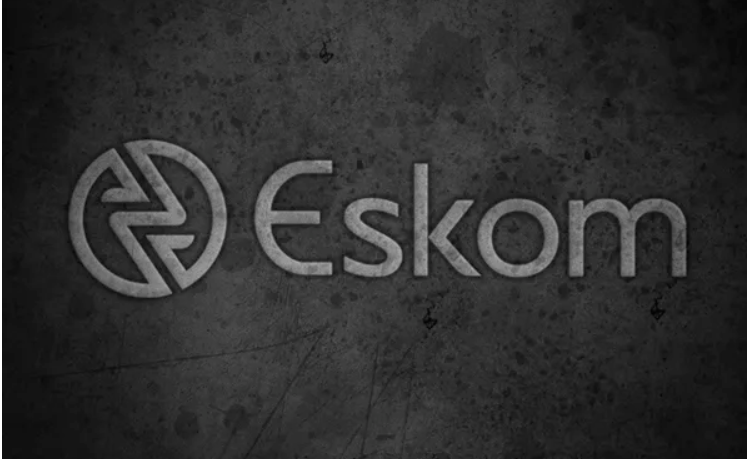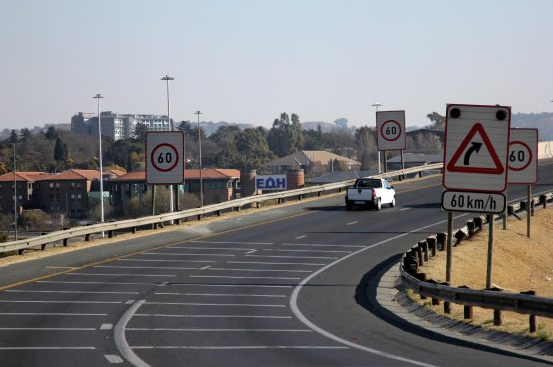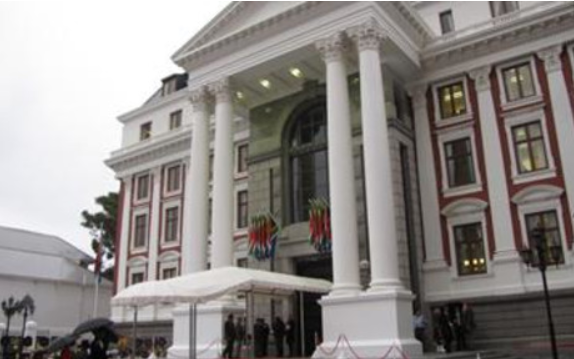
Parliament, Sunday, 3 November 2019 – Among the broad range of matters on the parliamentary agenda this week, the second round of Public Hearings on the National Health Insurance (NHI) Bill by the Portfolio Committee on Health kick-started in the Northern Cape in Kimberly on Friday, 1 November. Emthanjeni Municipality in De Aar was visited yesterday (Saturday, 2 November) whilst today the Committee is at Upington and will continue to Springbok on Monday, 4 November. Mpumalanga Province’s leg was concluded last week whilst Limpopo is scheduled for the next visit by the Committee. The objective of the Bill is to achieve universal access to quality health care services in South Africa as per section 27 of the Constitution; to establish a National Health Insurance Fund as well as to set out its powers, functions and governance structures.
Meanwhile, National Assembly (NA) Speaker Ms Thandi Modise’s participation at the G20 Speakers’ Summit, questions to the Deputy President and the Economics Cluster, the consideration of the Budgetary Review and Recommendation Reports (BRRR), a mini-plenary session on Agenda 63, as well as NA and National Council of Provinces (NCOP) committee meetings are scheduled this week.
Ms Modise will represent Parliament at the sixth G20 Speakers’ Summit this week from 3 to 5 November 2019. The summit, taking place in Tokyo, Japan, aims to strengthen the role of legislatures in global affairs. The Inter-Parliamentary Union (IPU) – the largest and oldest global parliamentary platform – and the House of Councillors of the National Diet (Parliament) of Japan are hosting the summit.
Ms Modise also participated in the 2018 Speakers’ Summit held in Buenos Aires, Argentina, ahead of the 2018 G20 Leaders’ Summit. The G20 is made up of 19 countries and the European Union. The 19 countries are Argentina, Australia, Brazil, Canada, France, Germany, India, Indonesia, Italy, Japan, Mexico, the Republic of Korea, South Africa, Russia, Saudi Arabia, Turkey, the United Kingdom and the United States of America.
On Thursday, 7 November 2019, Deputy President David Mabuza will be in the NCOP for oral replies to questions posed by its members. Putting questions to the Deputy President is one of the many ways in which Parliament holds the executive accountable. Section 92(2) of the Constitution stipulates that Members of the Cabinet account collectively and individually to Parliament for the exercise of the powers and performance of their functions.
The Economics Cluster 4C comprising the Ministries of Communications, Transport, and Public Works and Infrastructure will also respond to questions in the NCOP on Tuesday, 5 November 2019.
In all, the NA will hold three plenaries this week including a mini-plenary session. Amongst the key items on the agenda is consideration of the Budgetary Review and Recommendation Reports (BRRR) of various government departments. The BRRR provides an assessment of the departments’ service delivery performance, given available resources; an assessment of the effectiveness and efficiency of the departments’ use and allocation of available resources; and may include recommendations on the forward use of resources.
NA committees are required in terms of Section 5 of the Money Bills Amendment Procedure and Related Matters Act, 2009 (Act No. 9 of 2009) to annually assess the performance of each national department and to thereafter submit a Budgetary Review and Recommendation Report (BRRR).
The mini-plenary debate is scheduled to take place in the National Assembly on Thursday, 7 November 2019 under the theme “Advancing the African Union Agenda 2063 within the context of the twin pillars of economic development and security”. The NA Rules 49 (1) makes provision for the Speaker of the National Assembly to refer matters for consideration in a mini-plenary session, after due deliberation of views and directions of the Programme Committee. A mini-plenary session may proceed with its business irrespective of the number of members present.
Amongst parliamentary committee meetings scheduled for this week again are those of Joint Standing Committees, which will hold their meetings as follows:
Joint Standing Committee on the Financial Management of Parliament will on Wednesday (6 November 2019) receive three briefings on Parliament’s performance in the 2018/2019 financial year. The first briefing will be from the committee’s content and research team, followed by the Auditor-General of South Africa on Parliament’s 2018/2019 audit outcomes, and lastly by the Acting Secretary to Parliament.
Joint Standing Committee on Defence: the Chief Logistics on procurement will appear before the committee and give a briefing on the challenges faced by the Department of Defence on Thursday, 7 November 2019.
PUBLIC HEARINGS THIS WEEK:
Portfolio Committee on Health is currently holding its second round of public hearings on the National Health Insurance (NHI) Bill in the Northern Cape (1 to 4 November 2019).
Select Committee on Security and Justice will hold provincial public hearings on the Traditional Courts Bill on Tuesday, 5 November 2019.
Standing Committee on Finance and Select Committee on Finance will hold public hearings on the 2019 revised Fiscal Framework and
THERE ARE 34 COMMITTEE MEETINGS SCHEDULED THIS WEEK:
TUESDAY, 5 NOVEMBER 2019
Portfolio Committee on Agriculture, Land Reform and Rural Development: Briefing by the Department of Agriculture, Land Reform and Rural Development on drought update and Provinces’ state of readiness for the 2019/20 planting season.
Portfolio Committee on Home Affairs: Briefing by the Department of Home Affairs (DHA) and the State Information Technology Agency (SITA) on resolving the network downtime at the DHA offices; Briefing by the Department of Home Affairs (DHA) and the State Information Technology Agency (SITA) on the procurement process of the Automated Biometric Information System (ABIS); Briefing by the Department of Home Affairs on the litigation case management system and categorizing of the cases.
Portfolio Committee on Public Service and Administration: Interviews for filling the vacancy of Commissioner for the Public Service Commission; Deliberations and adoption of the recommended candidate to be selected to serve as a Commissioner for the PSC.
Portfolio Committee on Women, Youth and Persons with Disabilities, (National Assembly), [Briefing by the National Youth Development Agency on the annual report for 2018/19.
Portfolio Committee on Environment, Forestry and Fisheries: [Briefing by the Department of Environment, Forestry and Fisheries on the readiness for UNFCCC Climate Change COP25 conference in Chile.
Portfolio Committee on Human Settlements, Water and Sanitation: Interrogation and discussion emanating from the presentation made by the Department of Cooperative Governance and Traditional Affairs (COGTA); South African Local Government Association (SALGA) and National Treasury on debt owed for water provision.
Portfolio Committee on Justice and Correctional Services: Briefing on the Judicial Matters Amendment Bill and Customary Marriages Amendment Bill.
Portfolio Committee on Trade and Industry: Briefing by the B-BBEE Commission on its 2018/19 Annual Report and 2019/20 second-quarter report on financial and non-financial performance; Briefing by the NLC Commission on its 2018/19 Annual Report and 2019/20 second-quarter report on financial and non-financial performance.
Portfolio Committee on Higher Education, Science and Technology: Briefing by the Department of Higher Education and Training (DHET), Umalusi and the State Information Technology Agency (SITA) on progress report in eradicating the certification backlog in the Technical and Vocational Education and Training (TVET) colleges.
Select Committee on Health and Social Services: Briefing by the Department of Health on the Annual Report 2018/2019.
Select Committee on Cooperative Governance and Traditional Affairs, Water and Sanitation and Human Settlements: Workshop on Section 139 Interventions in the Municipalities and general observations.
Portfolio Committee on Communications: Briefing by the South African Post Office on: (i) impairment of its investment; (ii) governance and operational challenges; and (iii) an action plan to respond to AGSA material uncertainty as a going concern which has been reported in audit report for the past 5 financial years; Adoption of minutes.
Select Committee on Trade and Industry, Economic Development, Small Business Development, Tourism, Employment and Labour: Consideration of the Economic Partnership Agreement (EPA) between the South African Customs Union (SACU) and Mozambique (together SACUM) and the United Kingdom; Briefing by Department of Tourism on its 2018/19 annual report.
Joint Meeting: Standing Committee on Finance, Standing Committee on Appropriations, Select Committee on Finance and Select Committee on Appropriations: Briefing by the Financial and Fiscal Commission (FFC) and the Parliamentary Budget Office (PBO) on 2019 Medium Term Budget Policy Statement (MTBPS); Consideration of draft advertisement for position of Director of the PBO.
WEDNESDAY, 6 NOVEMBER 2019
Portfolio Committee on Higher Education, Science and Technology: Colloquium on funding of the post-school education and training sector.
Portfolio Committee on Public Works and Infrastructure: Briefing by the DPWI EPWP branch on: the manner in which it coordinates the programme across the national, provincial and municipal levels of government; the manner in which the directorate ensures uniformity of beneficiary selection, the standardisation of data verification; the formulae through which job opportunities are translated into actual jobs; the skills development and certification of EPWP beneficiaries; whether and how, in the next phase of the EPW programme, these aspects are going to be improved; Consideration and adoption of minutes; Consideration and adoption of the 2019/20 First Quarter Report
Portfolio Committee on Public Service and Administration: Briefing by the PSC on the extent and nature of contract appointments in national and provincial departments; Briefing by the Department of Public Service and Administration, Government Communication and Information System and Department of Cooperative Governance and Traditional Affairs on the location and funding model of the third generation of the Thusong Service Centres; Briefing by the Department Public Service Administration on the revised Ministerial Handbook; Adoption of the report of the recommended candidate for Commissioner post for the Public Service Commission Board; Consideration and adoption of the previous Committee minutes.
Portfolio Committee on Justice and Correctional Services: Briefing on the International Crimes Bill
Select Committee on Public Enterprises and Communication: Briefing by Alexkor on progress made regarding the court review of the Deed of Settlement (DoS) for payments to be made to beneficiaries and the establishment of the CPA to complete the implementation of the DoS.
Portfolio Committee on Defence and Military Veterans: Briefing by the Department of Defence (DOD), Armscor and the South African Defence Industry on the status and challenges in the Defence Industry in South Africa.
Select Committee on Education and Technology, Sports, Arts and Culture: Briefing by the Department of Sports and Recreation on its 2018/19 Annual Report.
Portfolio Committee on Communications: Meeting of the Subcommittee on ICASA Council vacancies
Portfolio Committee on Social Development: Briefing by the South African Social Security Agency (SASSA) and National Development Agency (NDA) on its action plan to respond to the Auditor General’s audit findings for 2018/19 annual report and BRRR; Briefing by the Department of Social Development on its first quarterly financial and non- financial performance report for 2019/20 financial year (April – June 2019)
Select Committee on Security and Justice: Parliamentary Legal Advisor’s response on Department of Home Affairs proposed amendment to the Border Management Authority Bill [B9B-2016]; Parliamentary Legal Advisor’s response to written submissions on Independent Police Investigative Directorate Amendment Bill [B 25 – 2018] (National Assembly – sec 75); Briefing by the Department of Justice and Constitutional Development on the written responses to the Child Justice Amendment Bill [B 32b – 2018] (National Assembly – Sec 75); Briefing by the Department of Justice and Constitutional Development on the Promotion of Access to Information Amendment Bill.
FRIDAY, 8 NOVEMBER 2019
Joint Meeting: Standing Committee on Finance and Select Committee on Finance:Response by National Treasury to the public submissions on the 2019 Revised Framework], Committee Room M514, Fifth Floor, Marks Building, 09:00-12:00
Portfolio Committee on Human Settlements, Water and Sanitation: Briefing by the Department of Performance, Monitoring and Evaluation on the delivery performance of the Department of Water and Sanitation and its entities for the 2018/19 financial year; Overview by the Auditor-General South Africa on the audit outcomes (financial and non- financial) performance of the Department of Water and Sanitation for the 2018/19 financial year.
ISSUED BY THE PARLIAMENTARY COMMUNICATION SERVICES









